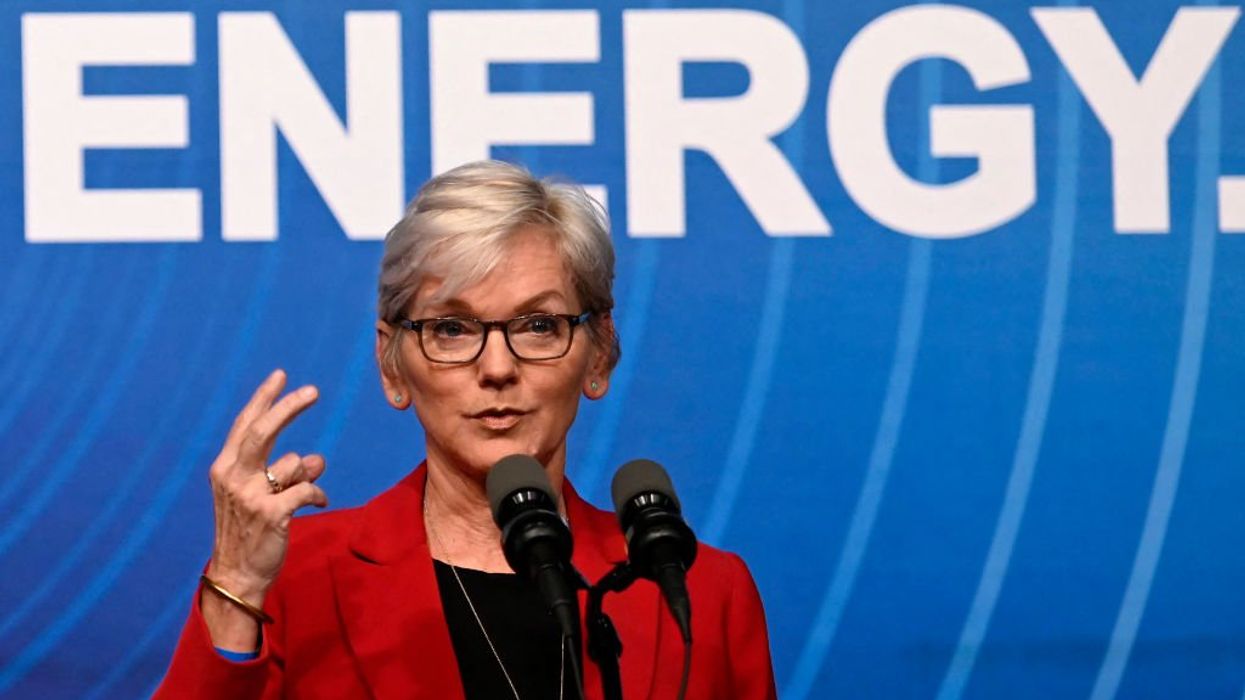
Photo by OLIVIER DOULIERY/AFP via Getty Images

The Biden administration appears eager to control precisely how Americans illuminate their homes, cook their food, and warm their families.
Whereas a ban on incandescent light bulbs is imminent and the implementation of a possible gas stove ban remains uncertain, a rule regulating gas furnaces is reportedly forthcoming.
The Biden administration is expected to soon finalize its diktat requiring homeowners to install energy-efficient furnaces, reported Fox News Digital.
The Department of Energy detailed the rule in a June 13, 2022, statement, claiming adoption would save consumers billions annually on their energy bills and reduce greenhouse gas emissions by 373 million metric tons over 30 years — alleged reductions critics have suggested are based upon faulty assumptions.
Under the rule, "non-weatherized gas furnaces and those used in mobile homes would be required to achieve an annual fuel utilization efficiency of 95%."
To hit this ultra-utilization efficiency standard, nearly all of the gas used by the furnaces must be converted into heat.
Unlike a less expensive conventional furnace where exhaust gases are vented outdoors, condenser furnaces the Biden administration seeks to foist on some of the population have secondary heat exchangers that capture the heat from the exhaust.
According to Ben Lieberman, a senior fellow at the Competitive Enterprise Institute, this standard, set to go into effect in 2029, "would effectively outlaw non-condensing furnaces and condensing alternatives would be the only ones available."
The current market standard for annual fuel utilization efficiency among available furnaces is reportedly 80%.
Under the proposed regulation, between 40% and 60% of furnaces on the market would be verboten.
Biden's DOE secretary, Jennifer Granholm, claimed at the time of the proposed rule's announcement, "By updating energy standards for many carbon-emitting appliances, such as home furnaces, the Biden Administration is working to save consumers money."
Granholm's claim of consumer savings has not convinced critics, some of whom have noted the coercive measure would not be cost-effective for everybody.
Lieberman, among the rule's critics, told Reason, "The only thing these standards do is force the ultraefficient choice on everyone, even though one size does not fit all. ... These efficiency standards tend to raise the upfront costs of an appliance, and you may or may not earn it back in energy savings."
The increased cost and hassle of having to keep up with the Biden administration's green ambitions would be compounded for homeowners whose homes and the venting systems therein are not compatible with condensing furnaces, suggested Lieberman.
Richard Meyer, the vice president of energy markets, analysis, and standards at the American Gas Association, agrees this is a problem.
Meyer suggested to Fox News Digital that consumers are "going to have to, in many cases, install new equipment to exhaust gas out of their home. These higher efficiency units, or so-called condensing units — a lot of consumers have them in their home, but a lot of consumers don't. So, this rule would require additional retrofits for a lot of consumers. And those retrofits can be extremely cost prohibitive."
The Competitive Enterprise Institute stressed in October that while the Energy and Policy Conservation Act of 1975 authorizes the DOE to "set and periodically consider amending energy and water conservation standards for most home appliances, including furnaces ... the statute contains a number of provisions protecting consumers from excessively stringent standards that may do more harm than good."
"A forced shift towards condensing furnaces would disproportionately burden lower- income homeowners who tend to have older and more space-constrained houses – the kinds most likely to need a non-condensing furnace," said the CEI.
Such lower-income homeowners might accordingly be forced to "make a switch, not to a condensing natural gas furnace but to an electric furnace, with higher operating costs as well as other potential disadvantages."
"Every home is different, every homeowner is different and people are best off having a wide range of choices," underscored Lieberman. "They can work with their contractor to make the best decision for their home and their circumstances."
Like Blaze News? Bypass the censors, sign up for our newsletters, and get stories like this direct to your inbox. Sign up here!